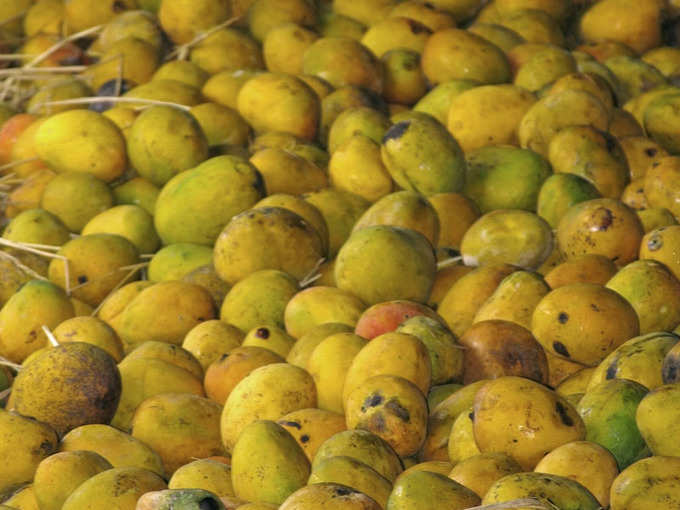 When the 28-member
When the 28-member
The ban itself is not too relevant for a fruit that does not thrive on preservatives. In 2013, about 207 boxes of mangoes were found infested with fruit flies that were ‘not of European origin.’ Authorities in
This triggered off a discussion regarding the potential harm the fruit flies might cause if and when they are ‘unleashed’ in the EU nations. In fact, the situation was considered close to a pre-timed nuclear bomb ticking away somewhere, to wipe the life off the face of the EU nations. Soon after, an inquiry was conducted and the matter was ‘emphatically’ treated with more seriousness than anything else that ever came up in the trade relations and discussions over one whole year yielded the result. Indian Mangoes, no matter how godly they are, are to be kept at an arm’s length from the European Union Countries.
Strategically, it is worth taking note of the timing of the ban. It is
As far as the ‘mango ban’ goes, the most metaphorical protest came from Keith Vaz, the Labour Party MP from Leicester, a region that hosts a ‘mango festival’ as an annual ritual. The prestigious event, well attended by the who’s who of the region, enjoys great solidarity as well. So the hurt was evident. But unfortunately, the dent was already made. Vaz, armed with a box of the most succulent mangoes, perhaps one from the last lot to arrive on the European shores, delivered those to
The ban on the king of fruits will remain in force till December 2015, in order to save the European salad crops, such as tomatoes and cucumbers. A newspaper in
Interestingly, the UK alone imports around 16 million mangoes worth £6.3 million from India while its total mango market is worth £68 million. Other countries such as
With this current ban on Indian mangoes, diplomatic relations are bound to suffer to an extent, but the common man, referred to as the aam aadmi in India, is not complaining. By the way, aam in Hindi language also means mango. Truly, the scorching summer of
As a result of the EU ban on mangoes, the most coveted varieties including Hapuz, Langra and Dusheri, which would have found their way to foreign homes via chartered flights, have now entered the Indian markets, much to the joy of the middle-class households. The princely fruit, which usually costs an arm and a leg, is now quite affordable. That’s definitely good news as the mango-diplomacy reaches its pinnacle during the days of abundance and basketfuls are exchanged between families as a warm gesture. Thanks to the ban, Indian mangoes have only turned sweeter for the Indians this season. It is one of those rare occasions when a diplomatic crisis is actually not a crisis, for at least one of the countries involved.
Image: Thinkstock